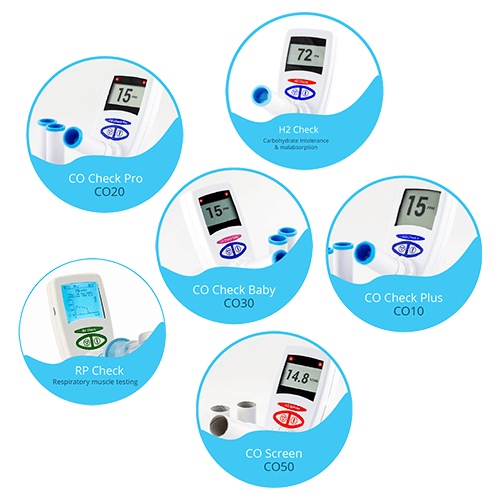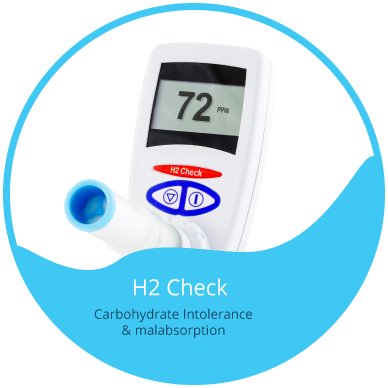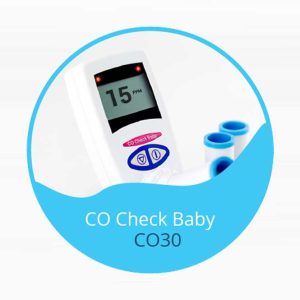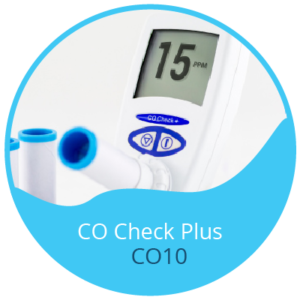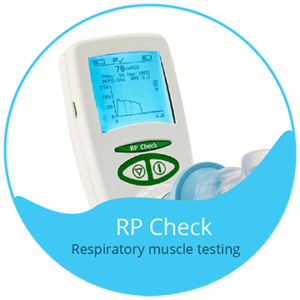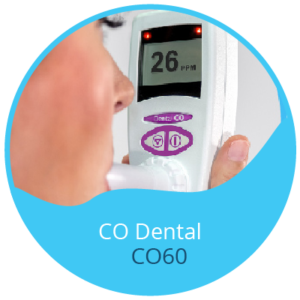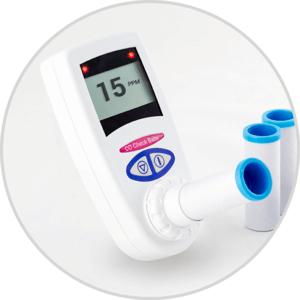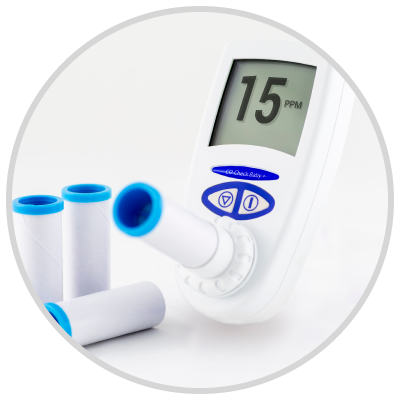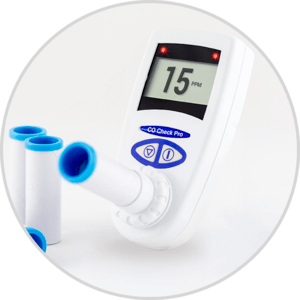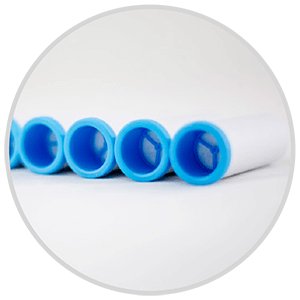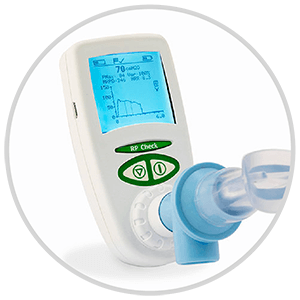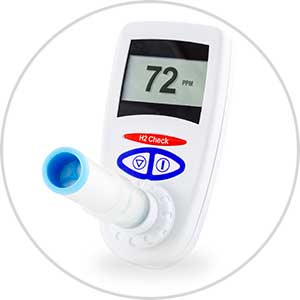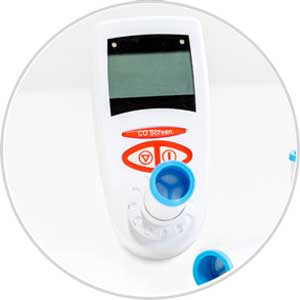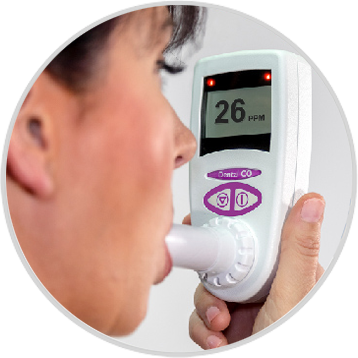The H2 Check is suitable for all age groups of patients. Its principle use is for the simple diagnosis of Lactose, fructose or sucrose Intolerance.
H2 Check complete with the following accessories:
- 1 x Hard shell carry case
- 5 x Sample SafeBreath filtered cardboard mouthpieces
- 3 x Intermediate re-breathing valves (for re-breathing mode)
- 1 x Intermediate plastic adapter (for single blow mode)
- 1 x 9v PP3 lithium battery
- 1 x Calibration plastic adapter
- 1 x Operating manual
Using a special re-breathing technique, patients are required to simply tidal breath into the H2 Check for immediate results in parts per million
Call for more information on: +44 (0)1622 682686
Description
Hydrogen breath testing is a non-invasive measurement of hydrogen on the breath, as a result of sugars or carbohydrates not being digested fully. Bacteria in the colon digest and convert sugars and carbohydrates into gases, the main gas being hydrogen. Under normal circumstances most sugars and carbohydrates are digested in the small intestine, however, when this does not happen they then reach the colon where there are a larger number of bacteria and as such cause an increase in the amount of hydrogen being produced.
One of the most frequent hydrogen breath tests is for lactose intolerance. Lactose is a sugar found in milk and other dairy products. Unless it is changed into glucose it cannot be absorbed into the body. This change happens when the lactose passes through the stomach into the small intestine and comes into contact with something called Lactase. If there is insufficient lactase present the lactose can not be broken down, this in turn leads to Lactose Intolerance.
Bacterial overgrowth can also be determined using hydrogen breath testing, The number of bacteria is greatest in the colon but much lower in the small intestine. Also, the types of bacteria within the small intestine are different from the types of bacteria within the colon. Small intestinal bacterial overgrowth (SIBO) refers to a condition in which abnormally large numbers of bacteria are present in the small intestine, and are similar to the bacteria found in the colon.
![]()




